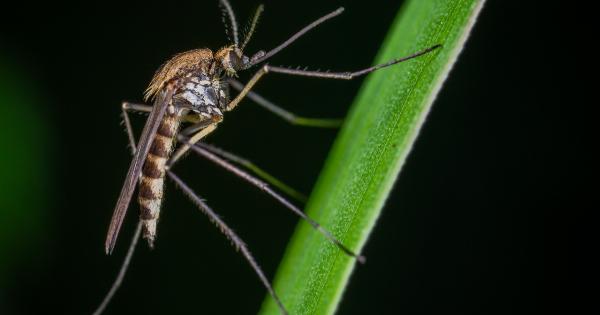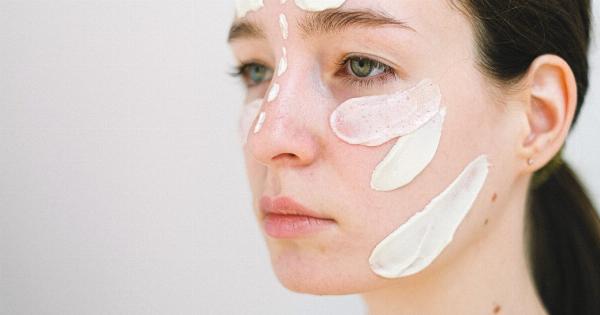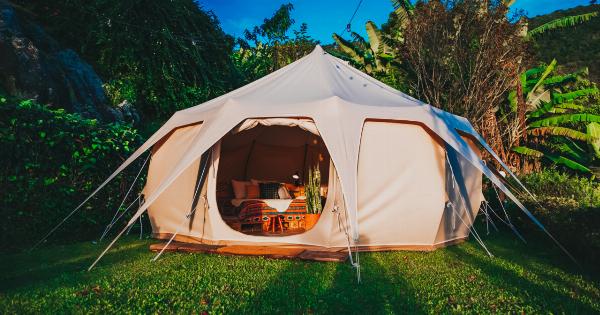Mosquitoes are pesky little insects that can ruin any outdoor activity. Not only do their itchy bites cause discomfort, but they can also transmit serious diseases such as Malaria, Dengue fever, and Zika virus.
Finding ways to repel mosquitoes is crucial for your well-being and enjoyment of outdoor spaces. In this article, we will explore various methods to keep mosquitoes at bay so you can finally have an itch-free experience.
H2: Understanding Mosquitoes
Before diving into how to repel mosquitoes, it’s essential to understand their behavior and what attracts them in the first place. Mosquitoes are usually attracted to the carbon dioxide we exhale, certain body odors, and moisture.
Additionally, they are often attracted to dark-colored clothing and stagnant water where they lay their eggs. Armed with this knowledge, we can now explore effective ways to repel these annoying creatures.
H2: Wear Protective Clothing
Dressing appropriately is one of the first steps in repelling mosquitoes. Wear long-sleeved shirts, long pants, and socks to cover your skin. Light-colored clothing can help deter mosquitoes as they are less attracted to lighter shades.
Additionally, you can treat your clothes with permethrin, an insect repellent that can be sprayed directly on fabric.
H2: Use Mosquito Repellent
One of the most common and effective ways to repel mosquitoes is by using mosquito repellents. These come in various forms, including lotions, creams, sprays, and even wearable devices.
Look for repellents that contain DEET, picaridin, or oil of lemon eucalyptus, as these ingredients have proven efficacy in repelling mosquitoes. Apply the repellent evenly on exposed skin surfaces, following the instructions provided.
H2: Remove Standing Water
Mosquitoes breed and lay eggs in stagnant water. Therefore, it’s essential to remove any standing water around your home and outdoor areas. Empty buckets, flowerpots, birdbaths, and clear out clogged gutters.
Keep your swimming pool properly chlorinated, and if you have a pond, consider using a mosquito larvicide to prevent the growth of mosquito larvae.
H2: Use Mosquito Nets
If you’re facing a mosquito problem indoors, especially during sleep, using mosquito nets can be highly effective. Install a mosquito net over your bed to create a physical barrier between you and the mosquitoes.
Ensure the net is properly tucked in and doesn’t have any holes or gaps where mosquitoes can enter.
H2: Avoid Peak Mosquito Activity Times
Mosquitoes are most active during dawn and dusk. Avoid spending extended periods outdoors during these times, as you are more likely to encounter a swarm of mosquitoes.
If you enjoy early morning or late evening activities, make sure you take extra precautions by wearing protective clothing and using mosquito repellents.
H2: Use Fans
Mosquitoes are not particularly strong fliers, so using fans can help create a breeze that makes it difficult for them to fly towards you. When you’re sitting on your porch or outdoor area, place a fan strategically to keep mosquitoes away.
This simple yet effective method can significantly reduce mosquito bites.
H2: Plant Mosquito-Repelling Plants
Nature has provided us with some plants that mosquitoes find repulsive due to their strong scents. Planting these plants in your garden or keeping them indoors can help repel mosquitoes naturally.
Some examples include citronella, lavender, basil, peppermint, and marigold. Not only will these plants beautify your surroundings, but they will also provide a natural defense against mosquitoes.
H2: Control Mosquitoes with Insecticides
If you’re dealing with a severe mosquito infestation that cannot be resolved through other means, consider using insecticides. Look for mosquito-specific insecticides that are safe for both indoor and outdoor use.
Follow the instructions provided on the product label carefully to ensure maximum effectiveness and minimal environmental impact.
H2: Install Window and Door Screens
Prevent mosquitoes from entering your home by installing window and door screens. Make sure the screens are in good condition and have no tears or holes.
Screens can provide a barrier against mosquitoes while still allowing fresh air to circulate indoors.
H2: Conclusion
Mosquitoes can be a constant source of annoyance, especially during warmer months. Repelling mosquitoes is essential not only for avoiding itchy bites but also for safeguarding against potentially dangerous diseases they may carry.
By wearing protective clothing, using mosquito repellents, removing standing water, and using other preventive measures mentioned in this article, you can enjoy your time outdoors without worrying about these pesky insects. Remember, it’s always better to be proactive in preventing mosquito bites rather than dealing with the discomfort and potential consequences later on.


























